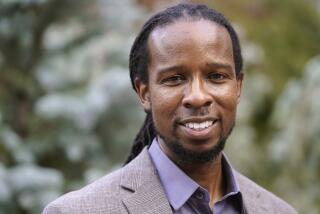At 36, No One Suspected She Had Colon Cancer
- Share via
CHICAGO — It was late 2002 when Candace Henley, then 36, started feeling fatigued and under the weather. A Chicago bus driver, she attributed it to work and marital stress.
She was often constipated too, which she blamed on inconsistent eating habits. The bloating and abdominal pain were gas, she figured, or “female problems,” because she had a history of endometriosis.
When she passed out at work, Henley sought medical attention. She had a hysterectomy and, because her blood count was low, a transfusion.
She felt fine for a few weeks, but the symptoms returned.
Her blood count was even lower this time, indicating internal bleeding. A doctor suggested a fecal occult test, which detects blood in the stool. When the test came back positive, Henley had a colonoscopy.
And she had something else: Stage IIB colon cancer, meaning it had begun to spread beyond the colon wall.
It had taken more than six months for Henley to be properly diagnosed, and she believes it was in large part because of her age; at 36, no one suspected colon cancer.
“Just because you’re in your 30s doesn’t mean it can’t happen to you,” she said.
Upon receiving her diagnosis, Henley was scheduled for surgery the next day. She had 95% of her colon removed.
After surgery and nine days in the hospital, she went from a size 14 to a size 6. Her five daughters, who ranged in age from 4 to 16, thought she was going to die.
She said she was fortunate that she didn’t require a colostomy; instead, doctors were able to reconnect the remaining parts of her colon. She underwent one bout of radiation.
Three years later she is still regaining control of her bowels. She has a checkup every six months to make sure the cancer hasn’t returned.
“So far, so good,” said Henley, who volunteers as a patient advocate with the Colon Cancer Alliance.
“The vast majority of people have no symptoms until the disease is advanced,” said Dr. David Rubin, assistant professor of medicine at the University of Chicago.
When symptoms surface, patients say they have seen blood in their stool, although hemorrhoids can cause that too.
As the disease advances, patients may become anemic and fatigued; they may experience nausea and abdominal pain.
Current guidelines call for screening to begin at age 50 if there is no family history of colon cancer and no blood in the stool.
“People have options,” Rubin said. “They can test their stool for blood, they can undergo a colonoscopy, or they can have a barium X-ray. Colonoscopy is considered the most accurate, currently, but something is better than nothing.”
For those with a close relative who was diagnosed at a young age, screenings should begin at 40, or 10 years earlier than the age of the relative at diagnosis.
Patients should ask their doctor for a screening rather than wait for the doctor to suggest it, Rubin said.
Henley couldn’t agree more. In her role as advocate, she speaks publicly about her experience. She said people in their 30s often complained that their doctors won’t order a colonoscopy, claiming, “Oh, you’re too young.”
“If you’re feeling symptoms you never felt before, go to the doctor.... Don’t assume it’s gas or something you ate. Find out.... You have to be proactive in your own healthcare.”
More to Read
Sign up for Essential California
The most important California stories and recommendations in your inbox every morning.
You may occasionally receive promotional content from the Los Angeles Times.












